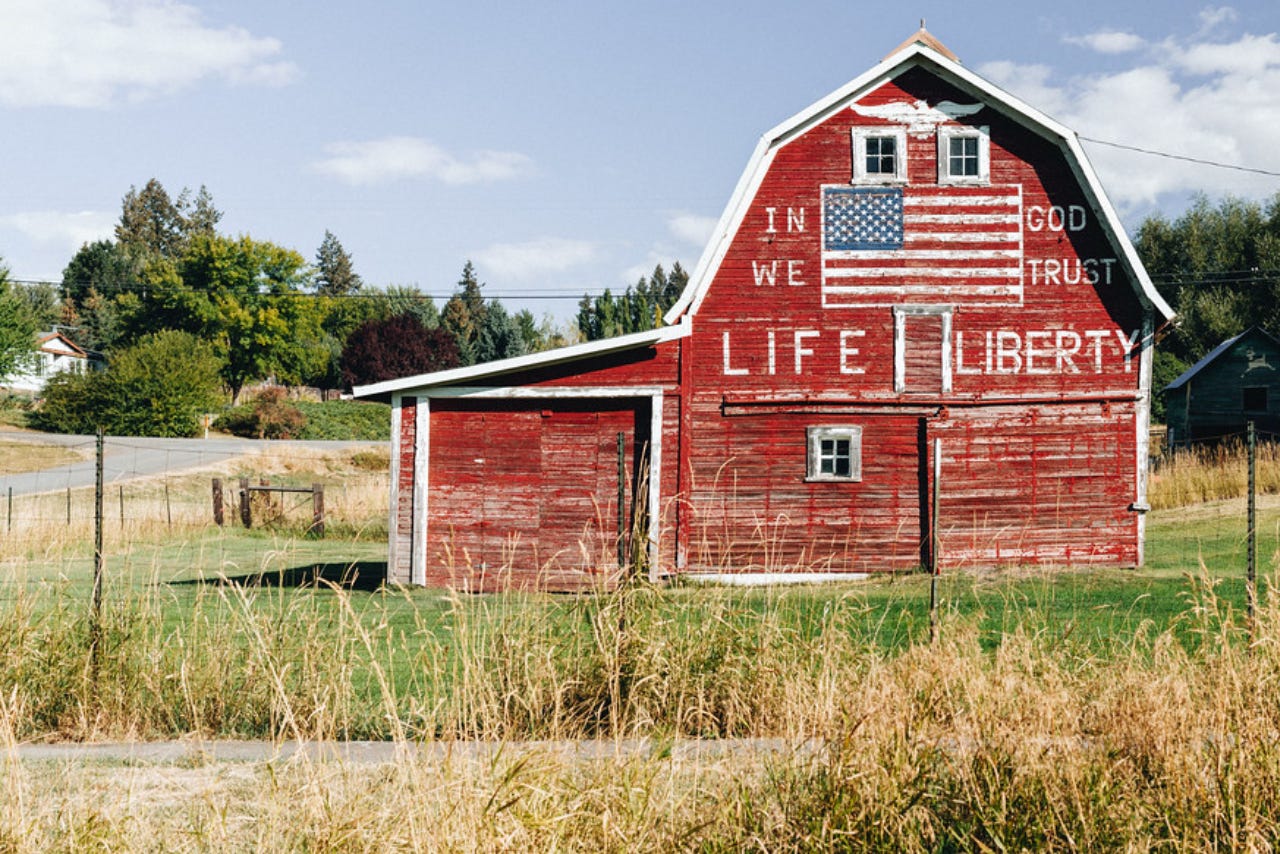EXTRA: The Battle For America’s Soul
Urban centers draw millions with promises of wealth, innovation, and opportunity, but deep in the heart of our cities, beneath the surface, lies a growing malaise. The dense concentration of people fosters self-centeredness, entitlement, and crime, while attracting political opportunists and power-hungry malcontents who exploit crowded populations to push divisive, often Marxist-leaning agendas. This urban decay is eroding the United States’ social and moral fabric, threatening the nation’s stability.
In contrast, rural life leans much more heavily to embodying a grounded, community-driven ethos rooted in humility, ethics, and humanity—values that not only offer a better way of living but also hold the key to restoring America’s strength.
My formative years near Chicago, working in the music industry, then as a firefighter and paramedic, and later in nonprofits and politics, revealed the stark contrast between urban and rural worlds.
In my music days, I traveled to major cities across the US and around the globe, swept up in the excitement of urban energy—the bright lights, bustling venues, and vibrant crowds. It was thrilling, a whirlwind of creativity and connection. But when I entered the fire service, the sheen of city life faded. I saw the underbelly of urban society: disconnection, desperation, and a culture of self-interest that fueled crime and apathy.
Cities like Chicago, New York, and Los Angeles are spiraling into dysfunction, with rising crime, homelessness, and social unrest driven by policies that echo Marxist principles:
In New York, Zohran Mamdani’s 2025 mayoral primary win, backed by democratic socialists like Alexandria Ocasio-Cortez, pushes rent freezes, free buses, and city-run grocery stores—funded by steep taxes that risk economic stagnation.
Chicago’s Mayor Brandon Johnson, elected in 2023, tried a $300 million tax hike that failed, leaving a 15% homicide spike in 2024.
Los Angeles, under Mayor Karen Bass, sees rising homelessness and stalled redevelopment, with critics on X decrying her policies as Marxist failures.
These urban experiments, prioritizing ideology over practicality, deepen a national crisis.
Rural life, by contrast, is a beacon of kindness and community. Country people, often misjudged by urbanites as simple, are sharp and resourceful, navigating life without city crutches. Their intelligence is practical—farmers fix complex machinery with precision; shopkeepers outsmart slick salesmen. But it’s their kindness that truly sets them apart. In rural communities, generosity isn’t a transaction; it’s a way of life.
When a neighbor’s barn burns, folks arrive with tools and lumber before the ashes settle. When a family faces hardship, meals and support appear without fanfare. I’ve seen elderly widows cared for by neighbors who mow their lawns, deliver groceries, or just sit and listen. This isn’t charity for clout—it’s a deep, unspoken commitment to each other.
Rural kindness extends beyond humans: stray animals find homes, and community gardens feed those in need. This ethos, rooted in empathy and accountability, fosters trust that urban anonymity can’t replicate. Country people are wary of urban snake oil, including the collectivist promises of Marxist-inspired policies that erode personal responsibility, because their communities thrive on genuine, face-to-face support.
The strength of rural kindness lies in its humility. Unlike urban environments, where recognition often drives action, rural generosity is quiet and unassuming. A farmer might spend a day helping a neighbor fix a fence, expecting nothing but a nod of thanks. Small-town churches and organizations organize food drives and fundraisers, not for headlines, but because it’s right. This humility breeds an ethical clarity—rural folks value hard work, fairness, and keeping their word. They don’t fall for the flashy promises of urban opportunists or the Marxist-leaning rhetoric that cloaks power grabs in progressive ideals. Their humanity shines in their ability to see each other as individuals, not as pawns in a political game.
America’s urban decay demands a return to this rural ethos. Cities, with their noise, crowds, and divisive ideologies, are losing their way. The concentration of people, with all its trappings, draws opportunists who exploit density to push agendas that fracture society. Rural kindness, humility, and ethics offer a path forward.
These values—forged in communities where people rely on each other, not on distant systems—can rebuild what urban chaos has broken.
The internet and remote work make embracing rural life easier than ever, allowing people to trade city dysfunction for places where the air is clean, stars are visible, and neighbors are family. But embracing this ethos isn’t just about relocation; it’s about adopting a mindset that prioritizes community over self, action over rhetoric, and integrity over power.
Safeguarding rural America’s way of life is paramount. As cities crumble under the weight of their own failures, urban refugees must not be allowed to import their divisive ideologies, toxic policies, and power-hungry schemes into the heart of the countryside. Rural communities are the last bastion of America’s true strength, and they must be fiercely protected from the encroachment of urban decay. Country people don’t need city bureaucrats or opportunistic ideologues meddling in their tight-knit communities; they need the freedom to preserve their timeless values of mutual support, hard work, and trust.
The nation’s salvation lies in returning to the rural ethos—kindness that binds, humility that grounds, and ethics that endure. Country people are generous but not gullible, warm but not weak, rooted in principles that outlast urban fads. Choosing rural values is a stand for community, authenticity, and wisdom.
Cities can keep their skyscrapers and their failed experiments. Give me a quiet country road and neighbors who show up when it counts. If we’re to save this nation, it’s the humility, ethics, and humanity of rural America that will lead the way.








